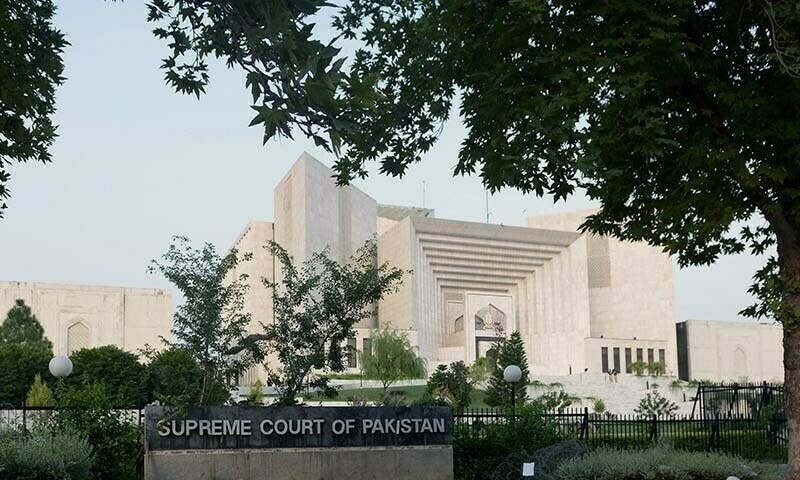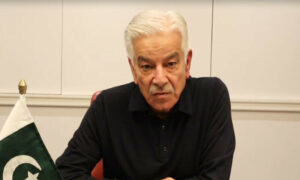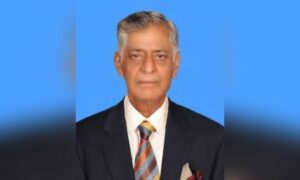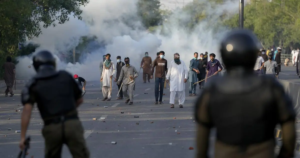ISLAMABAD: The Supreme Court on Wednesday held that ballot papers hold more significance in determining the vote count than Forms 45 and 47, as they serve as the primary evidence of any election result.
The observation came against the backdrop of the heated debate that ensued after the PTI claimed that its mandate in the Feb 8 elections was stolen, as the candidates fielded by the party were declared successful under Form 45s, but the results altered through Form 47s.
The Form-45 is the result of the vote count prepared by a presiding officer (PO) at each polling station, while Form-47 is the provisional consolidated statement of results of vote count of all polling stations in a constituency, prepared by the returning officer (RO) concerned.
A three-judge SC bench, headed by Chief Justice of Pakistan (CJP) Qazi Faez Isa and consisting of Justice Naeem Akhtar Afghan and Justice Shahid Bilal Hassan, had taken up a challenge instituted by Ghulam Rasool, assailing the results of elections in Balochistan Assembly’s PB-14 (Naseerabad-II) constituency.
Three-judge bench upholds tribunal’s decision in PB-14 election dispute
The appeal was moved against the Aug 2 ruling of the Quetta Election Tribunal, which had decided the election dispute in favour of PML-N’s Muhammad Khan Lehri and against PPP’s Ghulam Rasool.
Authored by the CJP, the SC judgement explained that the ballot papers were the determinative factor, and what was recorded by POs or ROs in the requisite forms was not the final determination of the vote count, if the votes were ordered to be recounted, which was done by opening the bags/packets containing the ballot papers.
“The ballot papers which are cast is the primary evidence of the election result,” the verdict explained, adding that the forms carried a presumption of correctness until the ballot papers were ordered to be recounted.
“A candidate may request for recounting of the votes and if such request is allowed, the votes are recounted, after issuance of notice to all the candidates, while the recounting takes place in the presence of all those who elect to attend,” the judgement said.
“If there is a dispute in this regard, the actual votes which are cast determine the controversy. Needless to state, if the seal of the bags/packets are found to be broken or tampered with the sanctity of votes therein stands compromised. This however is not the case of the appellant,” the judgment said.
Twenty-six candidates had contested the elections from PB-14 constituency on Feb 8 during which Muhammad Khan, one of the respondents, received the the highest number of votes with 21,103, whereas the runner-up, who is the appellant, received 19,093 votes. The candidate who stood third received only 347 votes. The contest, therefore, was between the appellant and Muhammad Khan — the respondent No. 11.
The SC judgement recalled that during the hearing, POs had testified as court witnesses and the parties were given an opportunity to cross-examine them.
Despite cross-examining them at length, the alleged wrongdoing on their part could not be established, nor could it be established that the copies produced by the appellant were those of actual Form 45s.
The judgement highlighted that in the present case, the appellant had questioned the declared results and sought recounting, which was allowed. Pursuant to the recounting, the votes received by the winning candidate (respondent No. 11) were reduced and so too those received by the appellant; however, respondent No. 11 still emerged victorious having received 1,919 more votes than the appellant.
The verdict said the tribunal had independently examined the case from all angles and attended to the allegations levelled by the appellant and correctly concluded that his allegations were not established, and that the election results were fair.
Consequently, the Supreme Court upheld the decision of the election tribunal while rejecting the appeal filed by Ghulam Rasool.
Published in Dawn, September 26th, 2024






